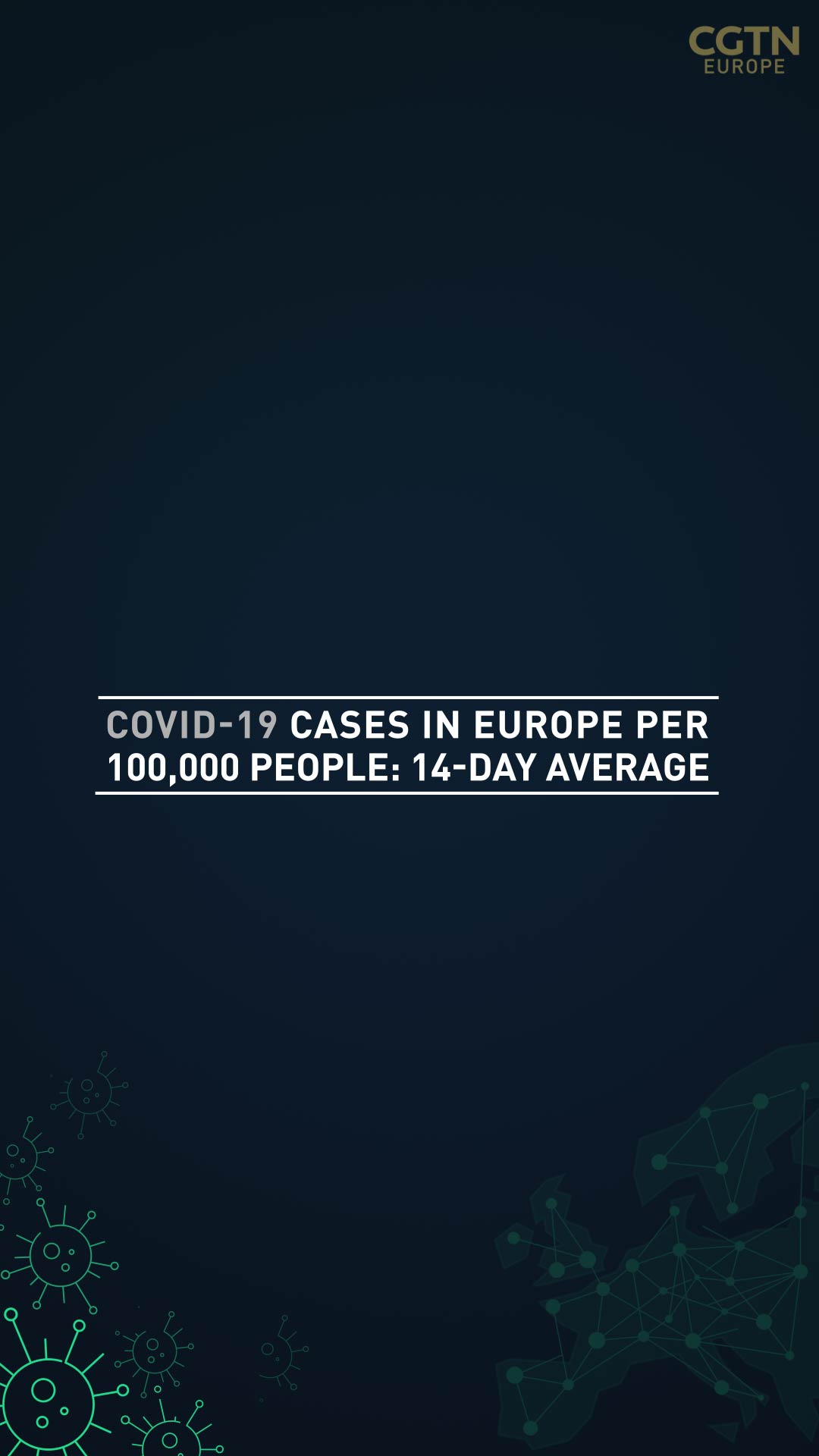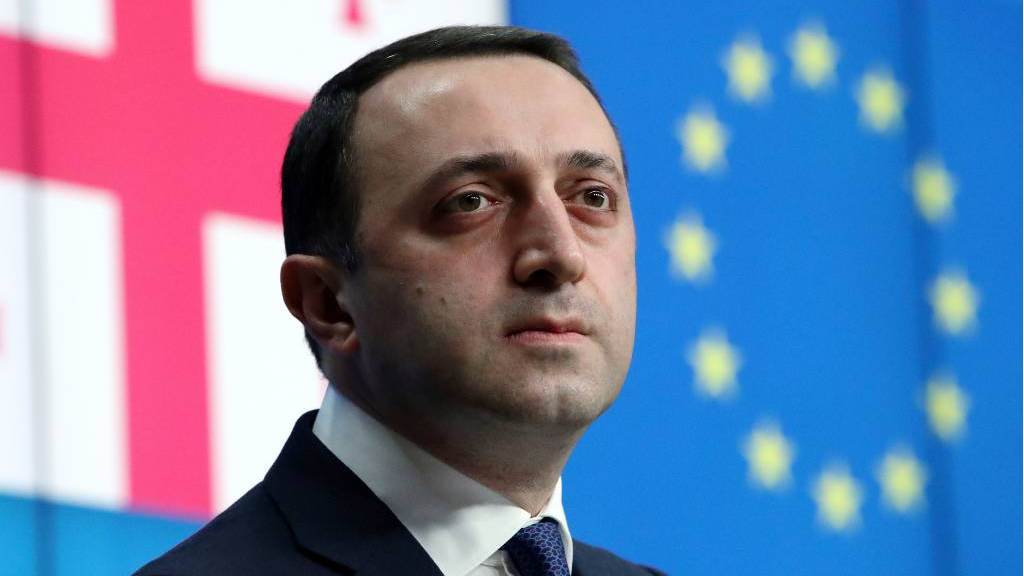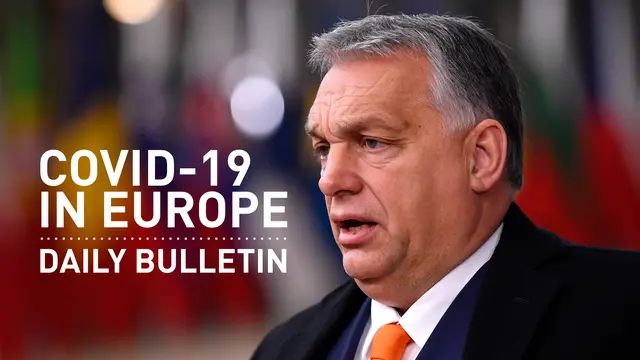TOP HEADLINES
-
Georgia's Prime Minister Irakli Garibashvili has tested positive for the virus , government officials have announced. A statement added that he feels well but is in self-isolation at home and will continue to work remotely.
-
**French drugmaker Valneva on Tuesday reported positive results for its vaccine in early-stage clinical trials **and said it planned to launch a phase three trial later this month. The firm tested its vaccine on 153 adults with three dose levels based on two doses taken three weeks apart. It added that the jab was "highly immunogenic," with "more than 90 percent of all study participants" developing significant levels of antibodies to the virus.
-
Saarland has become the first of Germany's 16 states to exit a nationwide lockdown , despite a spike in infections in many areas of the country. From Tuesday, outdoor restaurants, cinemas, theaters, gyms and some other public places are allowed to reopen for people who can show a negative test result no more than 24 hours old.
-
Hungary is to begin to gradually ease its lockdown restrictions within days or once 25 percent of its population has been vaccinated, the government said in a statement. Measures to be lifted first include a shortening of thenight-time curfew and the reopening of all shops until 9 30 p.m..
-
**The sports ministry of the Democratic People's Republic of Korea has said the country will not participate in this year's Tokyo Olympic Games **to protect its athletes amid the pandemic.
-
**Any introduction of vaccine passports in the UK "ought to come with rigorous guidance and enforcement to help firms navigate ethical, legal and practical implementation challenges," **according to the Confederation of British Industry's director of policy, John Foster.
-
Infection rates in Spain are rising, according to the latest data from the country's health ministry . Over the past fortnight, cases per 100,000 people rose to 163.4, up from 151.8 cases previously.
-
Cash is unlikely to pose a big risk of spreading the virus, a study by German researchers suggests. "Given that cash is typically stored securely in wallets and purses, the risk of direct contamination through exhaled droplets and aerosols seems much lower than constantly exposed surfaces," the report said.
-
The CEO of London's Heathrow Airport, John Holland-Kaye, has said it is disappointing the UK government didn't say when international holidays would resume. While the CEO of airline British Airways, Sean Doyle said he is optimistic that international travel can resume from May 17, despite Prime Minister Boris Johnson warning in his latest address to the nation it was too early to set a date.
-
The Moderna vaccine will be deployed across the UK around the third week of April for people within the healthcare system, while more doses of the jab will be available for others in May, Vaccines MinisterNadhim Zahawi has said.
-
Meanwhile, the UK is confident it will meet its target to offer vaccines to all over-50s by mid-April and all adults by the end of July, Zahawi added.
-
Russia reported 8,328 new cases in the past 24 hours , while fatalities also rose, by 389, to bring the nationwide death toll since the start of the pandemic to 101,106.
00:19

ACROSS EUROPE
Toni Waterman in Brussels
A new system that allows Belgians to reserve "last-minute" vaccination slots has been overrun with high demand. The platform, which links people to unused doses of vaccines, opened at midnight on Tuesday and at one point had more than 70,000 people in the virtual queue.
But the system is not operating on a first come, first served basis: people will only be contacted if they are part of a group being prioritized.
The initial program was launched in Flanders, with a separate system expected to open in Brussels by mid-April. Belgium has faced intense criticism for its slow vaccine roll-out and for doses going unused.
READ MORE:
Brexit crushed my retirement dream
Engineering lessons from nature
Should we mine the seafloor?
Penelope Liersch in Budapest
Hungarians are waiting for restrictions to be eased, with the country nearing 2.5 million vaccinations. Prime Minister Viktor Orban is sticking by his original announcement that rules would gradually ease once a quarter of the population had been given at least one dose of vaccine.
Despite record deaths and hospitalizations in the past few weeks, Orban has insisted vaccination is the only way to stop the virus.
It's expected 2.5 million jabs will have been administered on Wednesday, after which the curfew will become later, allowing people to be out until 10 p.m. instead of 8 p.m. Shops will be able to open until 9:30 p.m. and many non-essential retailers will reopen.
All shops will operate on a new size rule, by which one customer will be allowed inside per 10 square meters. Hairdressers and other services will also be given the green light to reopen.
Hungary is to begin to gradually ease its lockdown restrictions within days or once 25% of its population has received on dose of vaccine. /AP
Trent Murray in Frankfurt
The latest data from Germany's Robert Koch Institute show there have been 6,885 new COVID-19 cases recorded. That is a 28 percent drop compared with the same day last week.
But health experts will be extremely cautious when analyzing these numbers because several regions failed to input their results over the Easter weekend.
It means we could see a major spike in coming days if those same regions try to clear the backlog with a big dump of data. Against this backdrop, states remain in disagreement about the next steps of lockdown.
Armin Laschet, the premier of North-Rhine Westphalia, is calling for a new hard lockdown but other states, so far, are pushing back.
Ross Cullen in Paris
France's new "lockdown-lite" measures come into force across the entire country from today. The government is officially calling the new restrictions "supplementary braking measures."
People in much of France were allowed to travel over Easter but after the bank holiday on Monday April 5, all schools are now closed for the rest of the week. There will then be two weeks of spring holiday. The entire country is now restricted to travel of a maximum of 10 kilometers from their home during the 6 a.m. to 7 p.m. curfew.
Vaccinations at the Stade de France in Paris start on Tuesday. Officials at the national stadium say they will be able to vaccinate more than 10,000 people each week. Seven military hospitals will also begin vaccinating people and armed forces healthcare teams say they could deliver 1,000 shots each day.

Georgia's Prime Minister Irakli Garibashvili has tested positive for the virus, government officials have announced. /AP
FROM OUR GLOBAL COLLEAGUES
CGTN Europe:
The Answers Project: Are we alone in the universe?
CGTN China:
Chinese mainland reports 24 new COVID-19 cases
**CGTN America: **
Learning pods in New York have played a fraught role in the COVID-19 era
CGTN Africa:
The U.S. and West are waging vaccine warfare on the world
Sign up
here
to get the COVID-19 Europe bulletin sent directly to your inbox.
CGTN Europe has been providing in-depth coverage of the novel coronavirus story as it has unfolded.
Here
you can read the essential information about the crisis.
 简体中文
简体中文





